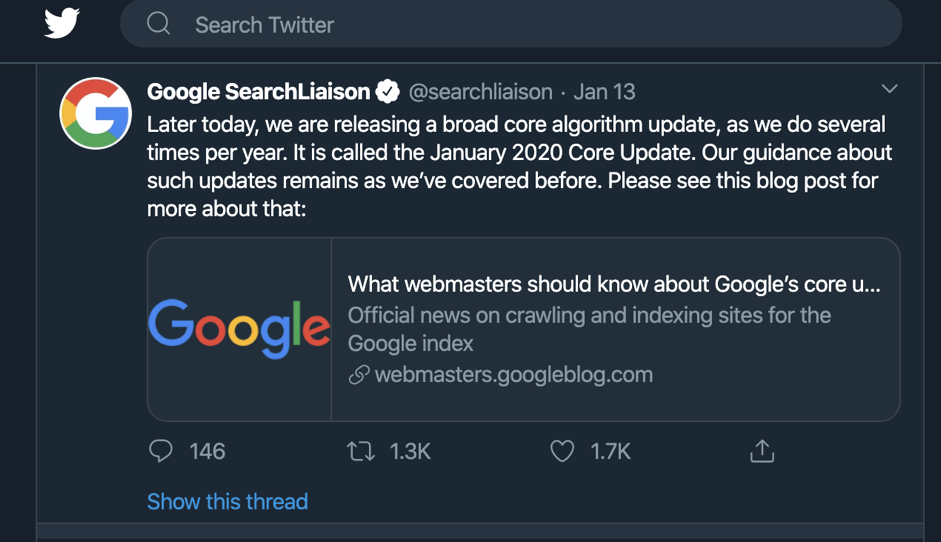Right when digital marketers think that they have figured out a way to tackle SEO, Google releases a new update. Not so shockingly, 2020 started with yet another algorithm update from the tech company that set another set of ripples in the SERP rankings.
Not before long, the analytics were already showing significant changes, with even the most steady websites wavering in their positions. While websites and agencies hire dedicated developers to make changes to the technical SEOs, the long-term impact of the new update is still under review.
With the ever-evolving algorithms of Google, even small businesses are looking into outsourcing a permanent team with remote WordPress developer and web designers to cope with the demanding alterations. In this article, let us take account of how Google’s algorithm update has influenced the SERP wilderness.
What is the January Google Core Update
Google confirmed its latest Core Update on the 13th January 2020. The search engine’s dedicated development team implements hundreds, if not thousands of small changes in the algorithm every year. Still, the core updates are the ones influencing the organic rankings the most.

The announcement was published on Google’s Twitter account, which states that the new broad core algorithm update was on its way to the data centers. The tweet mentioned that it would take two weeks to complete, and in February, it is fair to assume that the distribution is complete.
The Immediate Reaction
The first data and analysis found that there was a noticeable algorithm flush in the analytics. Comparing the different domains for the next couple of days after the update, it was evident that categories of health, family, and community are topping the list. Consequently, websites in the health domain had reached the higher SERP rankings, followed by Yahoo financing and dictionary.
The MozCast analysis shows a mix of domains extending beyond health and financing, with popular websites such as Instagram and Google Playstore still represented well. Even with the update completely rolled out, the full impact is yet to be measured.

What Webmasters can Do
While the update has boosted the traffic for many websites, unavoidably, some have also got affected. Along with the announcement, the search engine recommends reading their webmaster blog to understand what changes webmasters and offshore WordPress development teams can make to adapt to the changes.
Unfortunately, there is nothing more relevant about any specific core update that could be more useful for dedicated software developers. The message essentially conveys that if you see your website’s ranking drops, it does not mean that your pages or niches have been targeted. The only focus is on improving how the system assesses content.
According to Google, it is revising the algorithm to give credit to websites that were overlooked. Before you proceed to hire dedicated programmers to pinpoint the changes, ask yourself whether you meet these requirements.
Here is what the search engine focuses on while auditing a website.
- Content and Quality
Authenticity is always favored, not only by Google but also by the users. From the heading to the meta description, every feature should reflect on the uniqueness of the content.
- Expertise and Presentation
How much value does this content offer to the audience? Can you deliver an expert and trustworthy opinion, supported by research? How responsive is your website to the array of devices available?
- Comparison with Competition
How does your website perform compared to the competitors, and how do you stand out from the rest?
As regular and outdated as these guidelines might seem, Google continues to stress on these aspects to ensure that you have the best chances of higher SERP ranks. To address these concerns, webmasters would have to hire dedicated team for each aspect of SEO, from web design to content creation.
Beyond that, you also need to look into the technical aspects of web speed and integrating technical SEO to be favored by the search engines. The search engine does not bias between established brands and small businesses for SERP. Regardless of how big your business is, if you offer the right content, Google will undoubtedly recognize it. Programming outsourcing might be the most affordable approach for that.
It is almost unpredictable how an algorithm update might change your ranks. If you see any notable differences, the only way to tackle this would be to listen to Google’s directions on improving your content and work gradually to meeting the search engine’s expectations.


